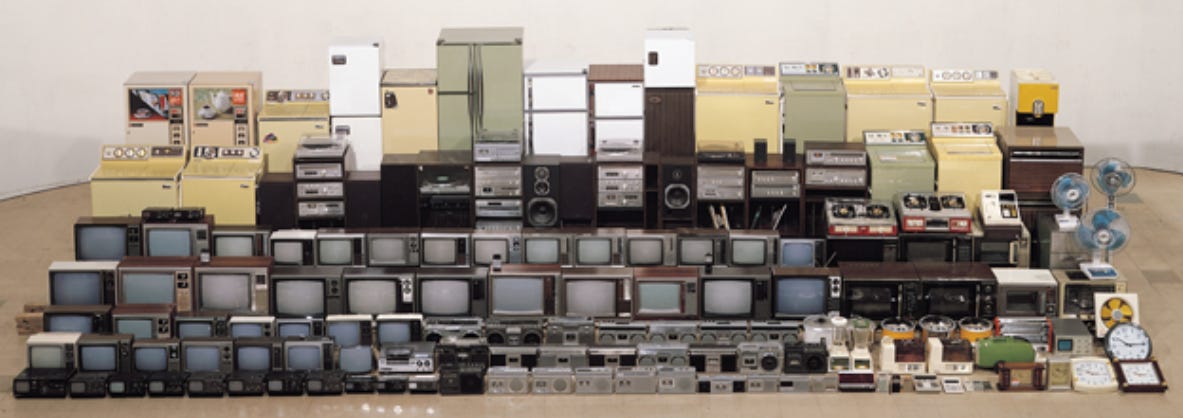Hello, Like A Korean Friends,
Have you ever had big dreams or goals? Or have you thought of a product or idea that you are passionate about? There are a great number of businesses in the world that began as something small and simple but have now grown to become industry leaders on an international level. In this issue of the newsletter, we are going to talk about one of the businesses that got its start right here in Korea and eventually grew to become one of the most successful corporations in the entire world. Korea's very own Samsung! The history of Samsung is quite fascinating, so grab a cup of coffee, tea, or soju and sit back while we take you back in time and take you through the history of Samsung! Enjoy the flashbacks to your younger years!
The early days of Samsung
Lee Byung-Chul, a wealthy South Korean businessman, established Samsung on March 1st, 1938. Daegu was the location of the business at the time, and its name at the time was Samsung Trading Co. The name Samsung means "three stars," and the company first concentrated on exporting items such as dried fish, noodles, and vegetables. However, Lee was an entrepreneurial businessman, and he recognized early on the opportunities for his company to branch out into other fields of interest.
In the 1950s, after the Korean War, Lee Byung-Chul was determined to help his country redevelop. So, Lee Byung-Chul and his company Samsung began expanding into non-electronics areas such as the textiles, insurance, and retail industries, among others. However, the firm did not begin to have any significant success until the 1960s. In 1969, Samsung Electronics was founded, and the company's first products were televisions produced in black and white specifically for the Korean market. After reaching this point, Samsung moved on to become a dominant force in the consumer electronics market all over the world.
The Continual Growth Of Samsung Electronics
The 1970s were a time of continued expansion for Samsung Electronics in terms of both its business and its product offerings. The company began manufacturing color televisions, which swiftly gained popularity in Korea and other nations across the world. In addition, Samsung began working on the development of more consumer electronics goods, including refrigerators, air conditioners, microwaves, and even portable televisions.
In 1987, Lee Byung-chul passed away. His son, Lee Kun-Hee along with Lee Byung-Chul’s other children, took over Samsung to keep their father’s vision and legacy alive. When Samsung Electronics created its first computer in the 1980s, the company made a significant advancement in the field of technology. This not only provided the firm with a huge advantage over its rivals, but it also made it possible for Samsung to become a prominent participant in the semiconductor sector. In the years that followed, Samsung continued its tradition of innovation and expanded its product line by manufacturing items such as mobile phones, digital cameras, LCD televisions, and many others.
The Modern Era Of Samsung And The Future
Today, Samsung is the market leader in consumer electronics on a global scale. The company offers a diverse selection of products, all of which are exported to a variety of nations. The corporation is most well-known for the production of smartphones, which have quickly become some of the most well-known and cutting-edge electronic products available on the market. Tablets, laptops, smartwatches, and even home appliances are just some of the different types of consumer devices that Samsung manufactures and sells. In every instance, Samsung was the pioneer in the production of a newly innovative product. The Galaxy Note, often known as the "phablet," was introduced by Samsung in 2012. Many of the company's rivals made fun of the business for designing such a huge phone. However, many have discovered that a larger phone is beneficial to their ability to multitask and increases their overall productivity. Shortly after, many cell phone manufacturers tried to make their own version of the “phablet”.
In recent years, Samsung has continued to push the boundaries of innovation by creating new technologies such as smartphones that fold and 5G networking. In addition, Samsung has been one of the most innovative companies overall. The company has also moved into other fields, such as biotechnology and renewable energy, showcasing its commitment to building a more sustainable and environmentally friendly future by demonstrating its commitment to establishing a more sustainable and environmentally friendly future.
International Success
The history of Samsung is one that is truly impressive, as it is replete with examples of imagination, hard work, and a dedication to achieving the highest possible quality. From its humble origins as a small business that traded goods to its current status as a global leader in technology, Samsung's success has been built on a foundation of perseverance, devotion, and a willingness to take chances and explore new opportunities. Samsung is one of the major companies that helped make Korea what it is today. A lot has changed for Samsung. It will be fascinating to see where this legendary firm goes in the years to come as it continues to develop and introduce new products and services.
Don't give up on your hopes and ambitions; just keep moving forward. It is possible that you might have a leading corporation in the future, similar to Lee Byung-Chul, who decided to start a business by selling noodles, fish, and veggies but eventually became a global leader in his industry.
Please let us know what you thought of this newsletter, and did you have any flashbacks of how electronics used to be? Also, have you ever owned any Samsung products? Please comment in the box. We would love to hear from you!
In our next newsletter, we will enlighten you on the cultural festivals and traditions that are celebrated in Korea! See you next time!























I enjoyed the brief history overview of Samsung...